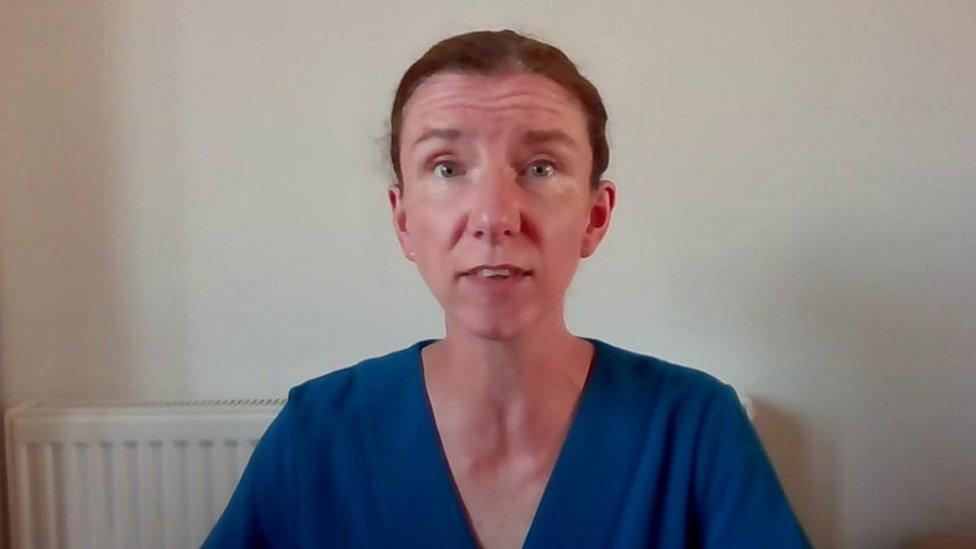UK economy: The recession-pandemic double whammy
- Published
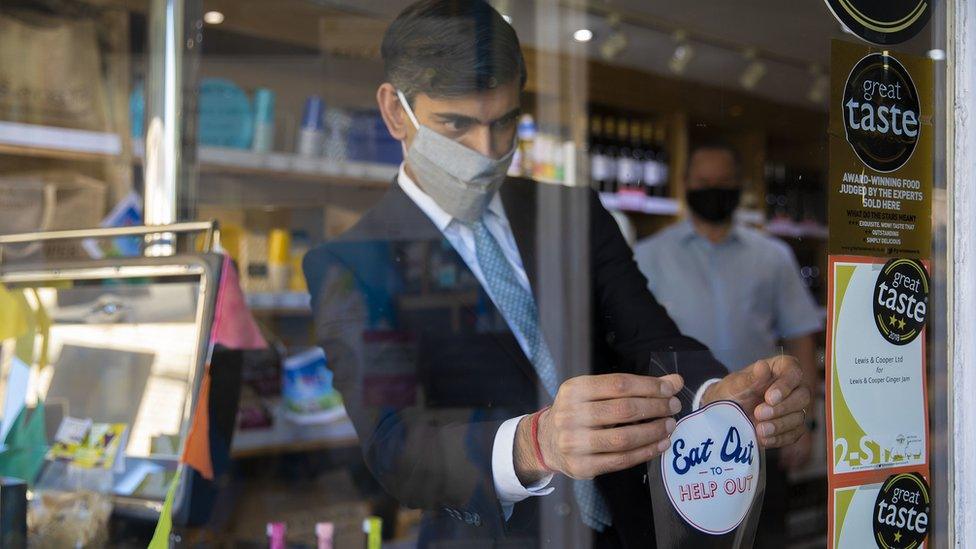
There is anecdotal evidence that 'eat out to help out' is helping High Street footfall.
The latest economic output figures show we are in a recession like no other - a consequence of having to shut the economy down, resulting in an unprecedented hit.
The hope is that it proves to be short-lived, indeed that it is already over.
Chancellor Rishi Sunak says he has never denied that the global pandemic meant "hard times". But questions do arise about why the UK is at the wrong end of international comparisons of both the economic hit and above average deaths during the pandemic.
The half-year hit is on course to be confirmed as the worst in the G7. The second quarter hit alone, which is more sensitive to the precise timing of the peak and shutdowns, was also the worst so far reported in Europe.
On Wednesday, Mr Sunak attributed that to the fact that the UK is more reliant on hospitality and tourism. But he also expressed the need for some "humility" over the challenges ahead, that will have to be managed without a playbook to work with, as he put it.
One crucial issue transcends the sterile debate about a simple trade-off between health and wealth: that much of the shutdown has been volunteered by the public.
Second wave
It is not a case of it now being forced or enforced by the government. Large swathes of the public have decided voluntarily to maintain strong social distancing, whatever government says.
This could explain why the UK for now appears to be facing a painful double whammy. After delaying lockdown in March, the virus spread further and deeper than it did in other countries.
So the government-mandated lockdown needed to be longer than in other countries, leading to a bigger economic hit. But large swathes of the country also decided to lock themselves down, and have continued choosing mostly to stay at home.
The government does appear to be learning from the experience in March. The 'eat out to help out' experiment is designed to change this psychology.
The anecdotal evidence suggests it is generating footfall - at least that was the case on a recent trip to Bath. What had been a ghost town, with key attractions shut, is now running at about a third of normal levels say local businesses.
Anneliese Dodds: The UK has not seen a big enough bounce back "and we really need one”
But it also explains the absolute focus on trying to deal with Covid outbreaks locally at an early stage, and the quarantining of returning holidaymakers from some countries.
The government wants to deal with any second wave, without the need for a further national lockdown that would worsen the economy and require more borrowing to pay the wages of millions. That depends entirely on the nature of a new infection wave.
Sensitive period
What, for now, the chancellor is adamant he will not do, is extend the furlough scheme.
Asked about the logic of the scheme as a bridge, now required in some sectors for longer than anticipated, the chancellor said: "That's been one of the most difficult decisions that I've had to make... Eight months... is a very long period of time for something like that to be happening.
"I think most people would agree that that's not something that is sustainable indefinitely... But we also shouldn't pretend that absolutely everybody can and will be able to go back to the job they had. That, sadly, is not going to be the case," he told me.
"And we're not doing people any favours by pretending otherwise. What we should be doing in that circumstance is giving them new opportunities to chart a new future."
So, we are now moving into a very sensitive period. The economy is growing again, but has made up only about a third of what was lost.
The end of furlough, some radical changes to how the UK trades with the rest of Europe, and a possible new infection wave mean very choppy waters until the end of the year.
- Published12 August 2020
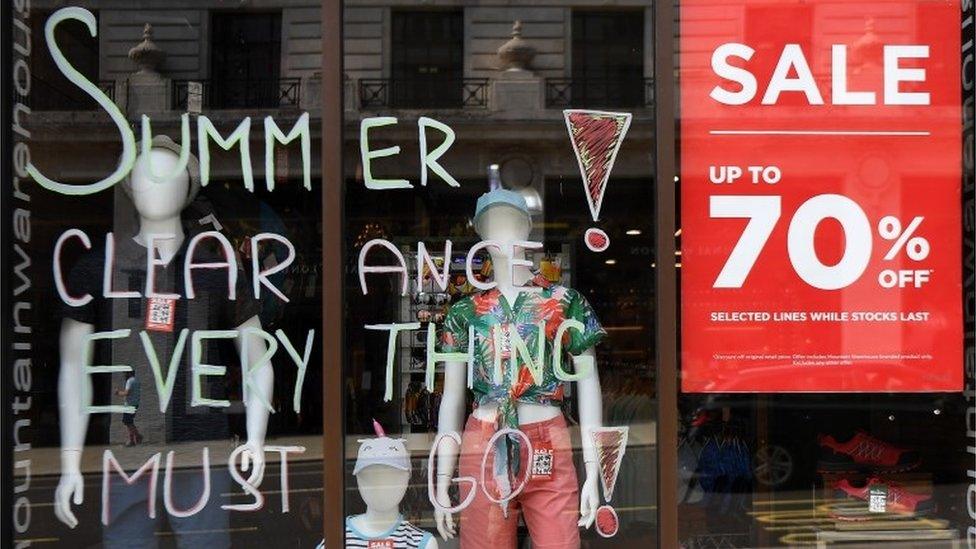
- Published10 May 2024
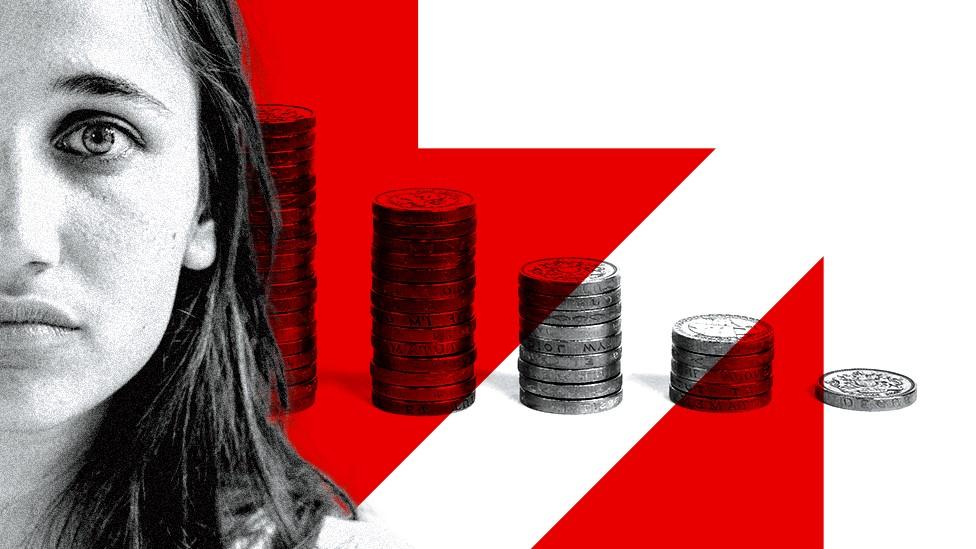
- Published12 August 2020
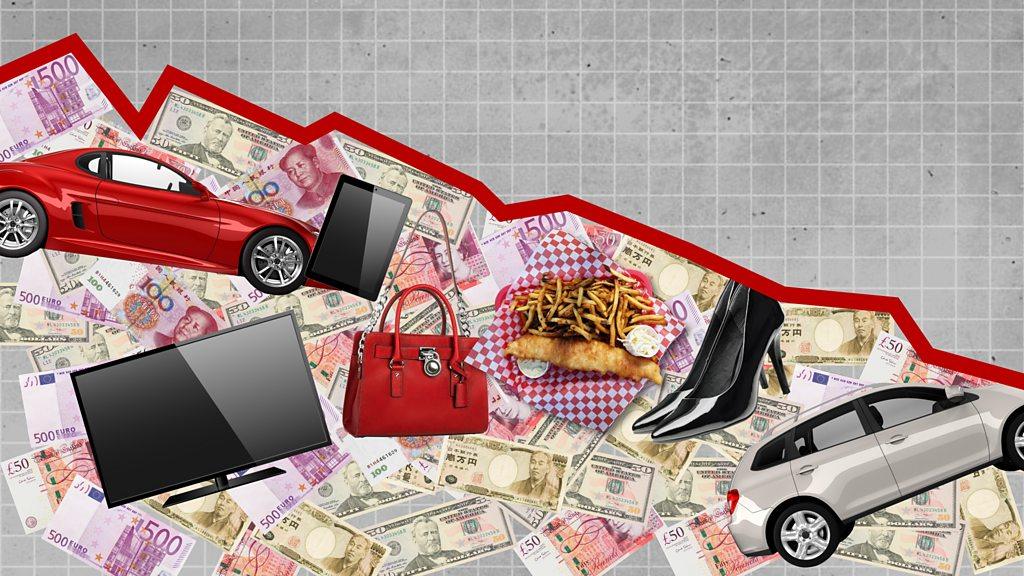
- Published12 August 2020
